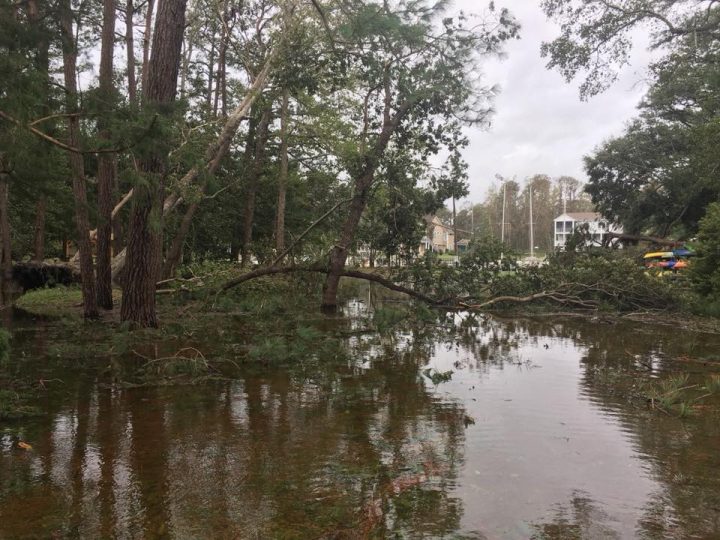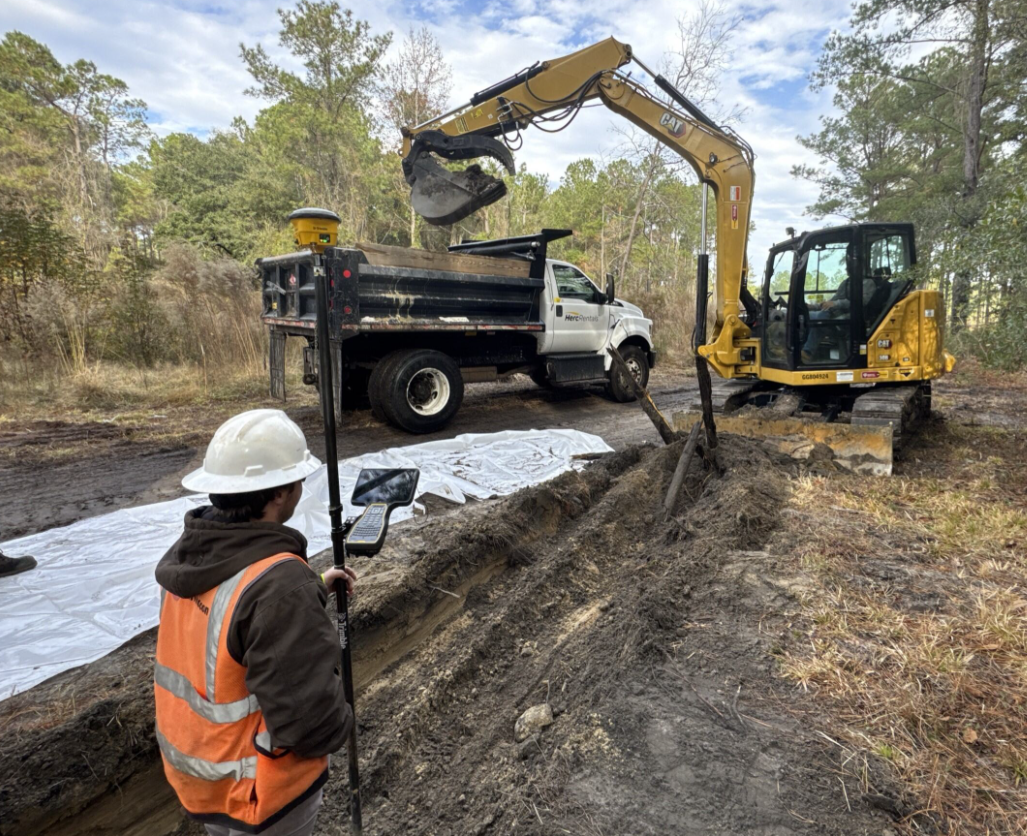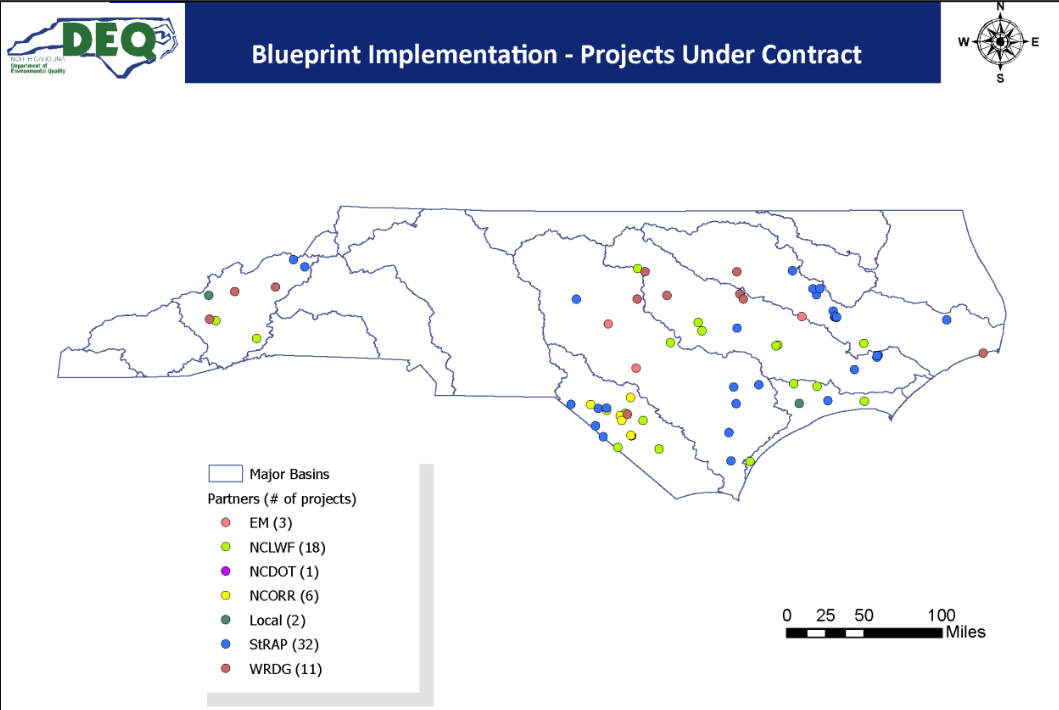
Environmental programs in several coastal counties have been awarded more than $1 million in Environmental Enhancement Grants.
North Carolina Attorney General Josh Stein’s office announced Monday the awards given to programs on the coast, the Piedmont and Triad and other North Carolina counties east of Raleigh. Awards for programs in western North Carolina were announced March 11.
Supporter Spotlight

The funds are through the Environmental Enhancement Grant, or EEG, program that began after an agreement between the attorney general’s office and Smithfield Foods in 2000. Under the agreement, Smithfield provides $2 million each year to the attorney general’s office to fund environmental projects across the state.
EEG awards grants between $5,000 and $500,000 to nonprofit organizations, including academic institutions, and government entities, and must be completed within three years after they are awarded. EEG funds have been used for wetland restoration, land acquisition, stormwater remediation, stream stabilization, and buffer installations, among many other projects.
Due to ongoing litigation, this year’s is the first grant cycle since 2016. The attorney general will distribute more than $3.5 million to 27 grantees in 2020.
The attorney general’s office provided the following information on coastal EEG recipients:
Currituck and Dare counties
Audubon North Carolina will receive $97,604 to create a community-based conservation plan to protect marshes in northeastern North Carolina. The plan will include partner meetings, assessments and design plans.
Supporter Spotlight
“I am pleased to support this effort to preserve marshes in the Currituck Sound,” said Stein. “Doing so will protect these precious and beautiful resources for generations to come.”
“With support from the Environmental Enhancement Grant Program and in collaboration with a diverse range of partners, Audubon will expand a planning and design project to protect marshes in Currituck Sound for birds and people,” said Cat Bowler, Audubon North Carolina Coastal Resilience Program Manager. “Audubon will leverage EEG funding with state and federal grants from the North Carolina Clean Water Management Trust Fund and the National Fish and Wildlife Foundation National Coastal Resilience Fund to develop a comprehensive conservation plan for important marsh habitat in Currituck Sound.”
Tyrell County
The North Carolina Department of Agriculture and Consumer Services will receive $46,292 to purchase conservation easement for 1,612 acres of farm and forestland.
“I am pleased to support this effort to enhance and strengthen the area’s environment,” said Stein. “Purchasing these easements will preserve it for generations to come.”
Craven and Jones counties
The Coastal Land Trust will receive $100,000 to make a loan payment on 2019 purchases to secure over 800 acres of land and New Bern will receive $70,000 to create a resiliency plan for the lower Neuse River to address the third phase of a flood mitigation plan to overcome economic and socioeconomic losses from massive flooding events.
“Preserving this land will allow generations to come to enjoy all the beauty and adventure nature provides,” said Stein. “I am proud to support this effort to maintain land in Craven and Jones counties. I’m also proud to help communities rebuild from recent storms and prepare for those that will unfortunately come in the future.”
“Coastal Land Trust greatly appreciates this recent EEG award which will help conserve one of the most ecologically significant sites on the coast, the Island Creek Tract in Jones County, an amazing 247-acre property with mature hardwood forest and unusual marl outcroppings that support many rare plants situated along 2.4 miles of Island Creek adjacent to the Croatan National Forest.”
Pamlico County
Ducks Unlimited will receive $100,000 to restore 144-acre wetlands on the Goose Creek Game Lands.
“Ducks Unlimited will improve water quality and restore wetland functions in the Pamlico River Basin,” said Stein. “As Attorney General, my job is to protect the air we breathe and the water we drink – and this project will go a long way in ensure clean water for generations to come.”
“The wetland restoration will aid the Wildlife Commission in management through the enhancement of existing wildlife habitat and provide valuable recreational opportunities for the citizens of North Carolina,” said James Rader, Ducks Unlimited director of conservation programs.
Carteret County
The North Carolina Coastal Federation will receive $100,000 for stormwater retrofits on public property in Pine Knoll Shores to reduce stormwater runoff and to install a 460-foot living shoreline and marsh to prevent erosion.
“Thanks to this grant award, public areas in Carteret County will be safer,” said Stein. “I am proud to support this effort.”
“We’re excited to work with the town to address chronic stormwater issues at two locations through infiltration techniques, decreasing the impacts of runoff on adjacent water bodies,” Bree Charron, coastal specialist with the federation, told Coastal Review Online. These projects are examples of steps the town is taking to implement its Watershed Restoration Plan to reduce the volume of runoff and instances of flooding.
New Hanover County
The North Carolina Wildlife Federation will receive $125,000 to fund garbage collection of 95,000 tons across the state with a focus on New Hanover and Craven counties. The program includes planting 7,500 trees and 20,000 pollinating plants.
The Nature Conservancy will receive $100,000 to develop an advanced hydrological modeling tool to identify future restoration and conservation locations.
Airlie Gardens will received $62,500 to dredge Airlie Lake to improve capacity and install a living shoreline along the causeway.
“These grants were established to preserve North Carolina’s environment,” said Stein. “That’s exactly what each of these projects will do in New Hanover County. I’m proud to support these efforts.”
“We are so appreciative of the EEG grant. It is an investment in community conservation; removing plastics and garbage from North Carolina waterways, protecting wildlife from being entangled, strangled, and impaled as well as keeping toxins from leaching into our drinking water,” said Tim Gestwicki, CEO, North Carolina Wildlife Federation. “In addition, the grant will allow us to plant thousands of native trees, shrubs and wildlife flowers benefiting native wildlife, curbing runoff pollution, storing carbon, and improving climate change resiliency and adaptation.
“The support from EEG allows us to accomplish thoughtful and detailed water modeling so that we know where to implement remediation strategies that will reduce flooding and improve water quality for people in the Cape Fear River Basin,” said Julie DeMeester, Director of Water, NC Chapter of The Nature Conservancy.
Coastal Plains
North Carolina State University will receive $200,000 to research and disseminate information into “floodwise” practices to improve water quality and increase resiliency to flooding on farms and in communities in eastern North Carolina.
“Eastern North Carolina knows far too much about the damage flooding can bring,” said Stein. “This research has the potential to help us do more to protect our communities – and rebuild them after a storm comes through. This project is critically important and I am pleased to support it.”







